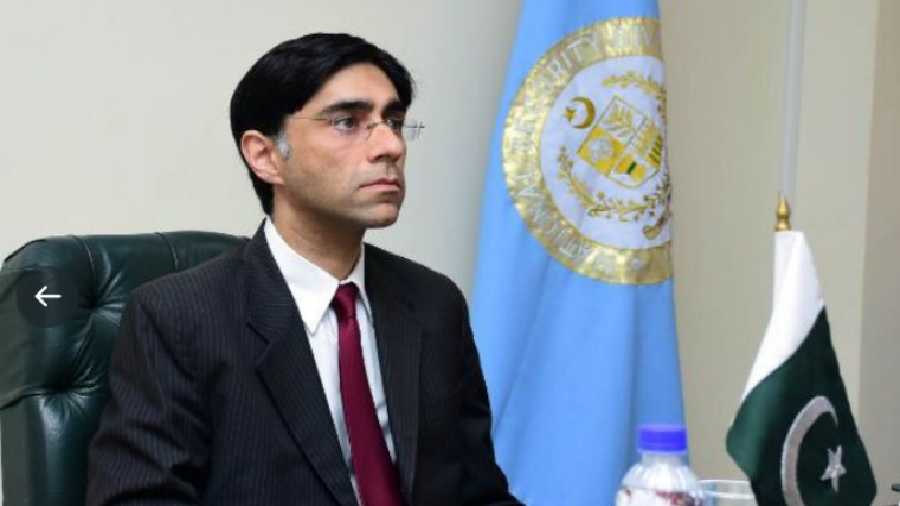Pakistan's National Security Advisor Moeed Yusuf on Friday questioned India's ability to handle sensitive technologies and called for an investigation into its "inadvertent" launch of a missile that landed in Pakistan.
India on Friday said it accidentally fired a missile two days back that landed in Pakistan and that the "deeply regrettable" incident was caused by a technical malfunction in the course of its routine maintenance.
Yusuf said in a series of tweets that the Indian government did not bother to inform Pakistan about the incident.
"This raises serious questions about India's ability to handle such sensitive technology," he said.
He said that the missile had travelled close to the path of international and domestic airlines and threatened the safety of civilians. He also called out the Indian authorities for not informing Pakistan immediately that an "inadvertent launch of a cruise missile had taken place".
"In a nuclear environment, such callousness and ineptitude raise questions about the safety and security of Indian weapon systems," he said.
Yusuf also alluded to multiple incidents of uranium theft in India that had been reported and its citizens "have even been arrested while smuggling uranium in the recent past".
He regretted that Pakistan's repeated calls urging the world to take notice of "India's irresponsible behaviour" had been ignored and New Delhi continued to pose a threat to regional stability.
"Given this incident (of March 9), and earlier ones, the world must consider whether India is able to ensure the safety and security of its nuclear and other high-end weapon systems," the Pakistani NSA said.
"The world must remove its blinders about the Indian state's behaviour within its country, its diplomatic direction, and its disregard for the need for peace and stability in its neighbourhood. The world must treat this incident with the urgency, sensitivity and (the) alarm it deserves."
Yusuf also called for an investigation into the "real circumstances surrounding" the March 9 incident "to ascertain if this was an inadvertent launch or something more intentional" as "it is hard to believe anything this Indian government says."
He said the missile could have caused massive damage.
The NSA's response to the incident was the latest to have come from Pakistan.
On Thursday night, Pakistan also summoned India's Charge d'Affaires in Islamabad and conveyed its strong protest over the "unprovoked" violation of its airspace by the supersonic "projectile" of Indian origin.
The Indian diplomat who was summoned to the Foreign Office was told about the alleged violation of its airspace by an Indian-origin super-sonic flying object which entered into Pakistan from Suratgarh in India at 6:43 PM (local time) on March 9, the Foreign Office said in a statement.
In New Delhi, India's defence ministry on Friday said that the government has taken a serious view of the incident and ordered a high-level Court of Enquiry into it.
Ties between India and Pakistan nose-dived after a terror attack on the Pathankot Air Force base in 2016 by terror groups based in the neighbouring country. Subsequent attacks, including one on an Indian Army camp in Uri, further deteriorated the relationship.
The relationship deteriorated further after India announced withdrawing the special powers of Jammu and Kashmir and bifurcation of the state into two union territories in August 2019.
India's move to revoke the special status of Jammu and Kashmir in 2019 outraged Pakistan, which downgraded diplomatic ties and expelled the Indian High Commissioner in Islamabad. It also snapped all air and land links with India and suspended trade and railway services.
India has said that it desires normal neighbourly relations with Pakistan in an environment free of terror, hostility, and violence.











